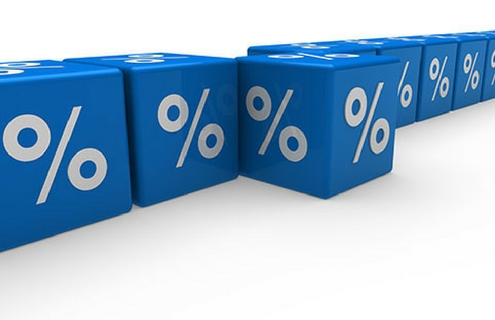US M&A jump helps boost Lyxor conviction
21 March 2018 Paris
 Image: Shutterstock
Image: Shutterstock
Lyxor Asset Management has said it maintains firm convictions on event-driven investment.
This comes after the level of mergers and acquisitions (M&A) activity in the US started on a “very strong footing” in the early weeks of 2018.
According to Dealogic, M&A activity jumped by 52 percent year-to-date compared to the same period last year, hitting $378 billion.
Healthcare and technology continue to be the sectors experiencing the stronger pace of consolidation, with respective volumes of $107 billion and $74 billion year to date (against $37 billion and $32 billion for the same period in 2017).
The Lyxor Cross-Asset Research team, headed by senior strategist Philippe Ferreira, said that it also maintains an overweight stance on fixed income arbitrage. The strategy has delivered attractive returns on a risk-adjusted basis in the past and provides protection against rising bond yields.
The bulletin said: “In the long-short equity space, we prefer US funds compared to European funds.”
“US tax reform might actually generate higher dispersion between stock returns and greater opportunities for long-short funds to generate returns on both their short and long book.”
“Finally, we downgrade commodity trading advisors (CTAs) to underweight (UW). We believe that market conditions could remain unstable and trendless going forward. Meanwhile, the rising correlation regime between equities and bonds is also a headwind.”
“However, we acknowledge the fact that the deleveraging of their portfolios implies that they are less sensitive to trend reversals and their performance should thus be less volatile going forward than it was lately.”
Lyxor also found that other recent data releases in the US have contributed towards stabilising the fixed income market.
The statement said: “Recently released data on wages and retail sales for February were below expectations, while the consumer price index in February grew just in line with the consensus at 0.2 percent month-over-month and 2.2 percent year-over-year.”
In this context, 10-year treasury yields have stabilised around 2.85 percent and concerns over inflationary pressures and additional monetary tightening than currently priced in by the market have somewhat abated. This has been supportive for risk assets, in particular in the US and emerging markets.
In the hedge fund space, this has contributed towards extending the winning streak of long/short equity and relative value strategies.
“So far during the first quarter, both have outperformed the remaining hedge fund strategies. On the contrary, CTAs continue to lag behind, to the extent that market turbulence in February forced them to deleverage their portfolios. This has prevented them from capturing the market recovery.”
This comes after the level of mergers and acquisitions (M&A) activity in the US started on a “very strong footing” in the early weeks of 2018.
According to Dealogic, M&A activity jumped by 52 percent year-to-date compared to the same period last year, hitting $378 billion.
Healthcare and technology continue to be the sectors experiencing the stronger pace of consolidation, with respective volumes of $107 billion and $74 billion year to date (against $37 billion and $32 billion for the same period in 2017).
The Lyxor Cross-Asset Research team, headed by senior strategist Philippe Ferreira, said that it also maintains an overweight stance on fixed income arbitrage. The strategy has delivered attractive returns on a risk-adjusted basis in the past and provides protection against rising bond yields.
The bulletin said: “In the long-short equity space, we prefer US funds compared to European funds.”
“US tax reform might actually generate higher dispersion between stock returns and greater opportunities for long-short funds to generate returns on both their short and long book.”
“Finally, we downgrade commodity trading advisors (CTAs) to underweight (UW). We believe that market conditions could remain unstable and trendless going forward. Meanwhile, the rising correlation regime between equities and bonds is also a headwind.”
“However, we acknowledge the fact that the deleveraging of their portfolios implies that they are less sensitive to trend reversals and their performance should thus be less volatile going forward than it was lately.”
Lyxor also found that other recent data releases in the US have contributed towards stabilising the fixed income market.
The statement said: “Recently released data on wages and retail sales for February were below expectations, while the consumer price index in February grew just in line with the consensus at 0.2 percent month-over-month and 2.2 percent year-over-year.”
In this context, 10-year treasury yields have stabilised around 2.85 percent and concerns over inflationary pressures and additional monetary tightening than currently priced in by the market have somewhat abated. This has been supportive for risk assets, in particular in the US and emerging markets.
In the hedge fund space, this has contributed towards extending the winning streak of long/short equity and relative value strategies.
“So far during the first quarter, both have outperformed the remaining hedge fund strategies. On the contrary, CTAs continue to lag behind, to the extent that market turbulence in February forced them to deleverage their portfolios. This has prevented them from capturing the market recovery.”
NO FEE, NO RISK
100% ON RETURNS If you invest in only one securities finance news source this year, make sure it is your free subscription to Securities Finance Times
100% ON RETURNS If you invest in only one securities finance news source this year, make sure it is your free subscription to Securities Finance Times



